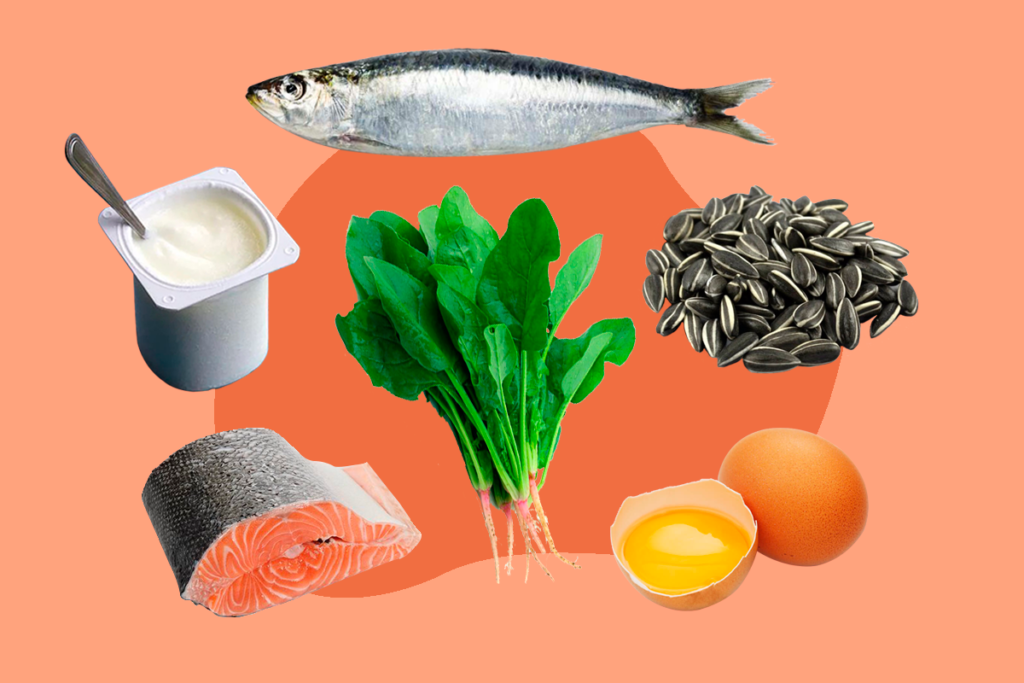B vitamins are a group of water-soluble vitamins essential for various metabolic processes and overall health. They play a critical role in converting food into energy, supporting brain function, and maintaining the health of skin, hair, and blood cells. Understanding their benefits and how to incorporate them into your diet can lead to improved vitality and cognitive performance.
What Are B Vitamins and Why Are They Important?
The B-vitamin family includes eight essential vitamins, each with distinct roles:
- B1 (Thiamine): Supports energy metabolism and nerve function.
- B2 (Riboflavin): Aids in energy production and antioxidant activity.
- B3 (Niacin): Improves cardiovascular health and brain function.
- B5 (Pantothenic Acid): Vital for hormone production and fat metabolism.
- B6 (Pyridoxine): Essential for neurotransmitter synthesis and immune function.
- B7 (Biotin): Strengthens hair, nails, and skin while supporting metabolism.
- B9 (Folate): Critical for DNA synthesis and red blood cell production.
- B12 (Cobalamin): Key for nerve health and red blood cell formation.
| B Vitamin | Main Food Sources | Key Benefits |
|---|---|---|
| B1 (Thiamine) | Pork, whole grains, sunflower seeds | Supports carbohydrate metabolism and nervous system health. |
| B2 (Riboflavin) | Dairy products, eggs, almonds, spinach | Promotes energy production and antioxidant activity. |
| B3 (Niacin) | Chicken, tuna, peanuts, mushrooms | Improves cardiovascular health and supports brain function. |
| B5 (Pantothenic Acid) | Avocados, sweet potatoes, liver, sunflower seeds | Aids in fat metabolism and hormone production. |
| B6 (Pyridoxine) | Bananas, poultry, fortified cereals, chickpeas | Essential for neurotransmitter production and immune function. |
| B7 (Biotin) | Eggs, almonds, sweet potatoes, spinach | Strengthens hair, skin, and nails while supporting metabolism. |
| B9 (Folate) | Leafy greens, legumes, oranges, fortified grains | Critical for DNA synthesis and red blood cell formation. |
| B12 (Cobalamin) | Meat, fish, eggs, dairy products | Vital for nerve function and red blood cell production. |
Benefits of B Vitamins for Energy
- Fuel for Your Cells: B vitamins, particularly B1, B2, B3, and B5, are crucial for breaking down carbohydrates, fats, and proteins into energy.
- Reducing Fatigue: Adequate intake of B vitamins can combat tiredness and boost overall energy levels.

B Vitamins and Brain Health
- Mood Regulation: B6, B9, and B12 help produce neurotransmitters like serotonin and dopamine, essential for mood stability.
- Cognitive Function: B12 and folate are critical for maintaining memory and preventing cognitive decline.
- Protection Against Neurodegenerative Diseases: Studies suggest that B vitamins may reduce the risk of conditions like Alzheimer’s.

Sources of B Vitamins
- Animal-Based Foods: Meat, eggs, dairy, and fish are excellent sources, especially for B12.
- Plant-Based Sources: Whole grains, leafy greens, legumes, nuts, and seeds provide B vitamins like B1, B2, B3, and folate.
- Fortified Foods and Supplements: Vegans and vegetarians often rely on fortified cereals and B12 supplements.

Daily Recommendations
The recommended daily intake varies for each B vitamin. For example, adults typically need:
- 1.1–1.2 mg of B1
- 2.4 mcg of B12
- 400 mcg of folate
| B Vitamin | Recommended Daily Allowance (RDA) | Main Food Sources |
|---|---|---|
| B1 (Thiamine) | 1.2 mg (men), 1.1 mg (women) | Pork, whole grains, legumes, sunflower seeds |
| B2 (Riboflavin) | 1.3 mg (men), 1.1 mg (women) | Dairy products, eggs, almonds, spinach |
| B3 (Niacin) | 16 mg (men), 14 mg (women) | Chicken, tuna, peanuts, mushrooms |
| B5 (Pantothenic Acid) | 5 mg (both men and women) | Avocados, sweet potatoes, liver, sunflower seeds |
| B6 (Pyridoxine) | 1.3 mg (adults under 50); 1.7 mg (men 50+), 1.5 mg (women 50+) | Bananas, poultry, fortified cereals, chickpeas |
| B7 (Biotin) | 30 mcg (both men and women) | Eggs, almonds, sweet potatoes, spinach |
| B9 (Folate) | 400 mcg (both men and women); 600 mcg (pregnant women) | Leafy greens, legumes, oranges, fortified grains |
| B12 (Cobalamin) | 2.4 mcg (both men and women) | Meat, fish, eggs, dairy products |
The Role of Supplements
While a balanced diet usually provides sufficient B vitamins, certain groups may need supplements, such as:
- Pregnant women (for folate).
- Older adults (for B12).
- Vegans and vegetarians (for B12).

Conclusion
B vitamins are indispensable for energy production, brain health, and overall well-being. Ensuring adequate intake through diet or supplements can improve vitality, cognitive function, and quality of life. Prioritize these vitamins in your daily routine to unlock their full potential.




